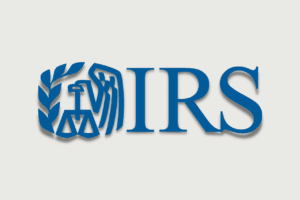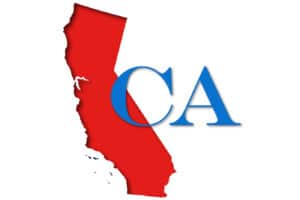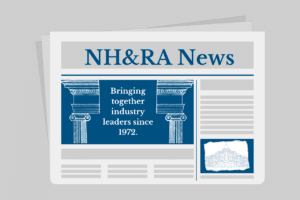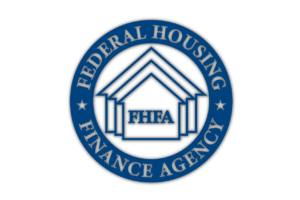News

$19 Million Available for TOD Comprehensive Planning
The Federal Transit Administration (FTA) released a Notice of Funding Opportunity (NOFO) for the pilot program for Transit-Oriented Development (TOD) Planning. Nineteen million dollars in funding is available to support comprehensive planning for new fixed guideway and core capacity improvement projects. The FTA will award grants ranging from $250,000 to $2 million dollars for proposals […]

DJ LaVoy Sworn in as Deputy Under Secretary for USDA Rural Development
Donald “DJ” LaVoy was sworn in on September 17 as deputy under secretary for Rural Development at the U.S. Department of Agriculture. DJ most recently served as the head of HUD’s Real Estate Assessment Center. The under secretary for Rural Development position, eliminated by USDA Secretary Sonny Perdue and reinstated by Section 12407 of the […]

FY 2020 Affordable Housing Program Funding Outlook Webinar Sept. 26
The Campaign for Housing and Community Development Funding will hold a webinar on FY 2020 Funding Outlook for Affordable Housing Programs on September 26 at 4:00 pm EDT. Doug Rice from the Center on Budget and Policy Priorities, Moha Thakur from the National Housing Trust, Steve Berg from the National Alliance to End Homelessness and […]

IRS Provides Safe Harbor for Rental Real Estate Businesses
Revenue Procedure 2019-38 provides a safe harbor for certain interests in rental real estate, including interests in mixed-use property, to be treated as a trade or business for purposes of the qualified business income deduction under section 199A of the Internal Revenue Code (section 199A deduction).

California Passes State Historic Tax Credit, Bill Awaits Governor’s Signature
The California Legislature passed S.B. 451, which would create a State Historic Tax Credit (HTC) for 20 or 25 percent of qualified rehabilitation expenses (QREs) that meet specific criteria and would be in effect from 2021 through 2026. The credit would have a statewide cap of $50 million per calendar year, with $2 million set […]

Washington State Report Details the Threat of LIHTC Nonprofit Transfer Disputes
The Washington State Housing Finance Commission released Nonprofit Transfer Disputes in the Low Income Housing Tax Credit Program: An Emerging Threat to Affordable Housing. In Washington and other states, nonprofit housing developers are struggling with legal challenges to statutory ownership transfers, draining resources away from affordable housing. The report defines the emerging threat and shares […]

FY 2020 Deadline Looms, Senate Appropriations Committee Approves T-HUD Bill
Yesterday the Senate Appropriations Subcommittee on Transportation, Housing and Urban Development and Related Agencies (T-HUD) favorably reported its FY 2020 funding bill to the full committee. The full Senate Appropriations Committee will hold a hearing on the bill at 10:30 am EDT on September 19 in the Dirksen Senate Office Building, Room 106 and via webcast.
As of publication, the T-HUD bill has yet to be released. Overall the subcommittee received a 302(b) allocation of $74.3 billion, $3.2 billion above the FY 2019 enacted levels. HUD received $56.0 billion in total budgetary resources, which is offset by $7.4 billion in receipts from the Federal Housing Agency/Ginnie Mae for a net funding level of $48.6 billion, an increase of $2.3 billion above the FY 2019 enacted level.

House Passes Three Housing Bills on Rural Housing Preservation, Carbon Monoxide and Homebuyer Assistance
The House has passed a set of housing-related bills, advancing these measures to the Senate. The Strategy and Investment in Rural Housing Preservation Act of 2019 (H.R. 3620) would permanently authorize the U.S. Department of Agriculture’s (USDA) Multifamily Housing Preservation and Revitalization program, and would authorize $1 billion to carry out the program. The Safe Housing for Families Act of 2019 (H.R. 1690) would authorize over $300 million over three years to fund the installation and maintenance of carbon monoxide detectors in HUD’s public housing units.
Finally, the Homebuyer Assistance Act of 2019 (H.R. 2852) would make it easier for homebuyers to buy a home with a Federal Housing Administration mortgage by alleviating the current shortage of certified appraisers.

HUD Proposed Rule Implements Three Sections of HOTMA
HUD released a proposed rule that would revise HUD regulations by implementing sections 102, 103 and 104 of the Housing Opportunity Through Modernization Act of 2016 (HOTMA S. 3083/H.R. 3700 of the 114th Congress). These sections make sweeping changes to the United States Housing Act of 1937, particularly those affecting income calculation and reviews. Comments are due by November 18.

FHFA Revises Fannie Mae, Freddie Mac Multifamily Loan Purchase Caps
The Federal Housing Finance Agency (FHFA) announced new multifamily loan purchase caps of $100 million each for Fannie Mae and Freddie Mac from the fourth quarter of 2019 to the fourth quarter of 2020. The new caps apply to all multifamily business with no exclusions. The FHFA also directs at least 37.5 percent of Fannie […]

FHFA Hosts Duty To Serve Listening Sessions
Fannie Mae, Freddie Mac (the Enterprises) and the Federal Housing Finance Agency (FHFA), in collaboration with the Federal Reserve Bank of St. Louis and the Federal Reserve Bank of San Francisco are hosting four Duty to Serve (DTS) Listening Sessions in the Fall of 2019. These listening sessions are an opportunity for the public to provide input on the Enterprises’ proposed plans for the second DTS plan cycle, 2021-2023.

Build More Housing Near Transit Act Introduced in Congress
Representative Scott Peters (D-CA) introduced the bipartisan Build More Housing Near Transit Act (H.R. 4307), legislation that aims to increase housing options near transit. This measure would amend the current rating criteria for the Federal Transit Administration’s New Starts program, which funds transit projects, such as commuter rail, light rail and bus rapid transit, through the Capital Investment Grants (CIG) program.